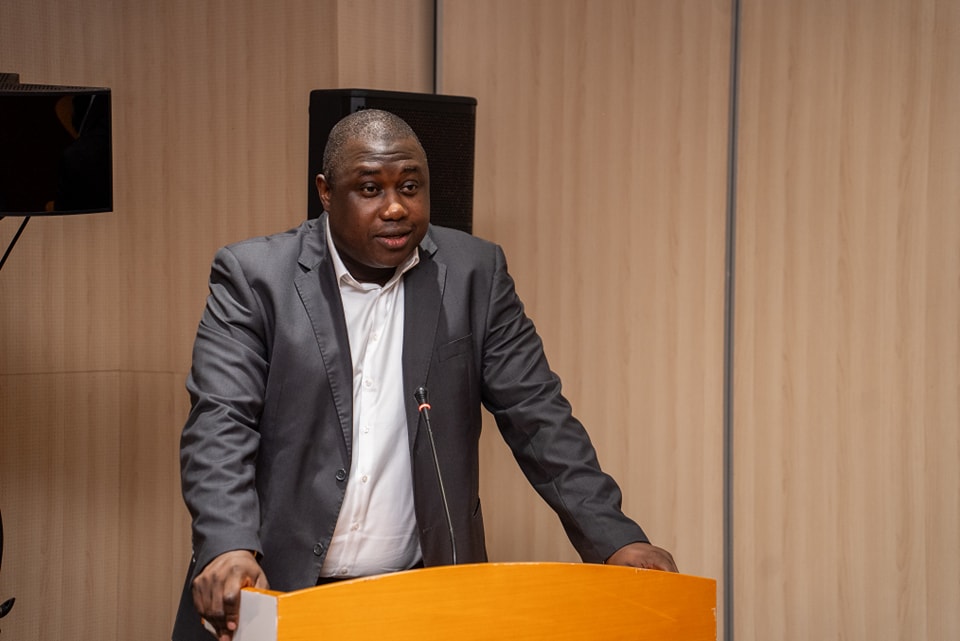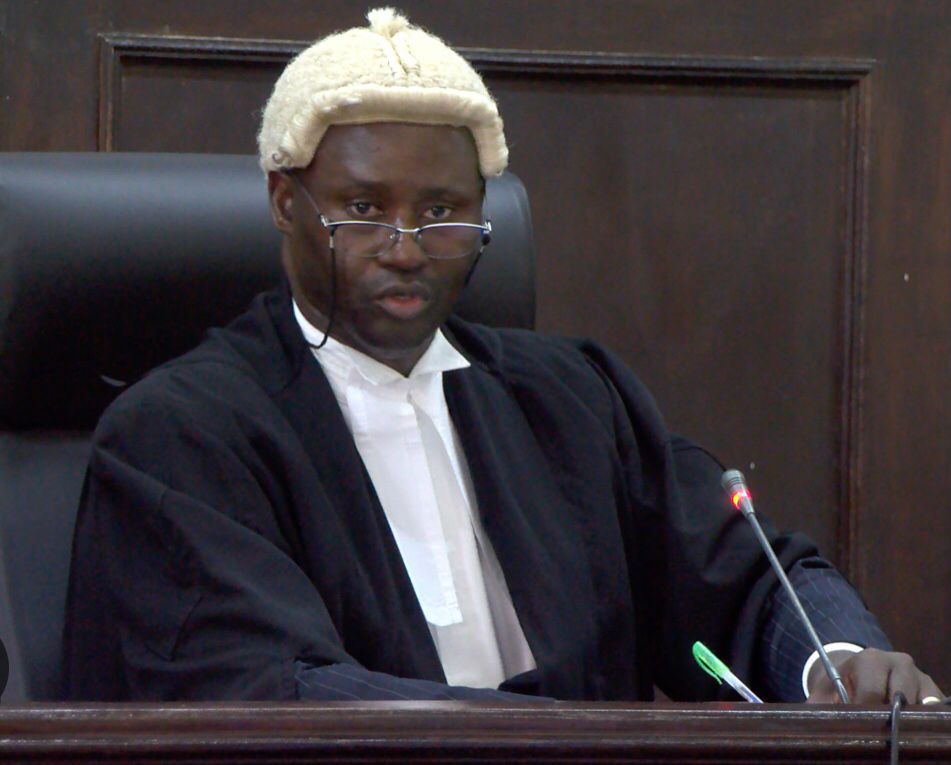Gambiaj.com – (BANJUL, The Gambia) – The High Court in Banjul today dismissed an application by Khadijatou Kebbah, the 1st Defendant in a civil suit filed by Gach Global Trading Company Limited, to give her defence evidence through Zoom. Justice Ebrima Jaiteh ruled that Ms Kebbah failed to provide any evidence to support her claims and ordered her to appear in person at the next hearing.
The case (Suit No. HC/147/2025) involves Cach Global Trading Company Limited as Plaintiff, Khadijatou Kebbah as 1st Defendant, and Saihou Drammeh as 2nd Defendant.
On 27 October 2025, Ms Kebbah, through her lawyer K. Jallow, filed a motion asking the court for permission to testify virtually. The application was supported by a short four-paragraph affidavit sworn by one Combeh Jobe on 28 October 2025. No documents were attached.
Ms Kebbah claimed she lives and works in Dubai, has a two-year-old child in her care, and cannot travel to The Gambia because of work and family responsibilities.
The Plaintiff did not oppose the application. However, the 2nd Defendant, represented by lawyer B.S.L. Conteh, filed a strong 21-paragraph affidavit in opposition, sworn by Ndogal Sowe on 17 November 2025, arguing that Ms Kebbah had not proved any of her claims.
During today’s hearing, the Plaintiff’s lawyers (O. & L. Jai-Low) supported the application. Ms Kebbah’s lawyer relied on Practice Direction No. 1 of 2022, which encourages the use of technology “where possible and appropriate”, and argued that parts of the opposing affidavit were improper.
Justice Jaiteh first rejected the complaint about the opposing affidavit. He ruled that paragraphs 8 to 20 of Ndogal Sowe’s affidavit contained only proper factual denials and did not break sections 89 and 90 of the Evidence Act. Those paragraphs stay on record.
On the main issue, the judge said virtual testimony is not a right; it is a special favour that must be backed by solid evidence. He noted that Practice Direction 1 of 2022 and section 24 of the 1997 Constitution (which requires public hearings) mean remote evidence can only be allowed for proven good reasons.
The judge listed what was missing from Ms Kebbah’s application:
– No passport or immigration stamps to show she is in Dubai
– No birth certificate or any record to prove she has a two-year-old child
– No employment letter, contract, or employer statement about her job or travel restrictions
– No visa or residence permit for Dubai
– No evidence at all of any hardship or difficulty in coming to The Gambia even for one court appearance
Because nothing was attached, the judge described the supporting affidavit as “bare, unsubstantiated, and legally insufficient”.
He warned that granting requests without proof would open the door for any defendant to avoid coming to court simply by saying they are abroad or busy, and would harm public hearings, cross-examination, and the fair treatment of all parties.
The application was therefore dismissed in its entirety.
Justice Jaiteh ordered Ms Kebbah to appear in person on the next adjourned date to adopt her witness statement and face cross-examination. He said compliance with the order is mandatory.
The ruling was delivered in court today, 19 November 2025, before Hon. Justice Ebrima Jaiteh. The Plaintiff was present; both defendants were absent.










